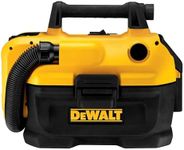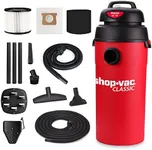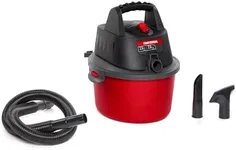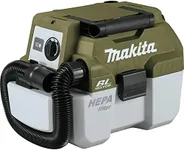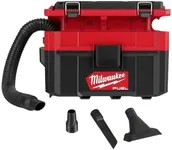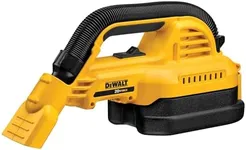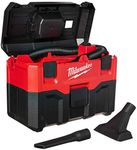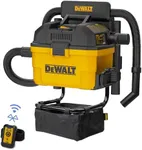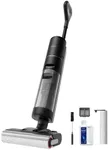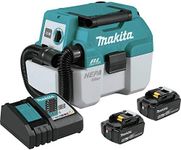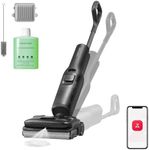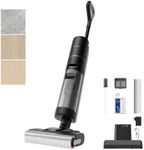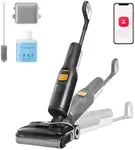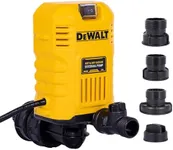Buying Guide for the Best Cordless Shop Vac
Choosing the right cordless shop vac can make a big difference in how efficiently you can clean up your workspace, garage, or any other area. Cordless shop vacs offer the convenience of mobility without the hassle of cords, making them ideal for quick cleanups and hard-to-reach places. When selecting a cordless shop vac, it's important to consider several key specifications to ensure you get the best fit for your needs. Here are the main specs to look at and how to navigate them.Battery LifeBattery life refers to how long the shop vac can run on a single charge. This is important because it determines how much work you can get done before needing to recharge. Battery life can range from 15 minutes to over an hour. If you have larger areas to clean or plan to use the vac for extended periods, look for models with longer battery life. For quick, small cleanups, a shorter battery life may suffice.
Suction PowerSuction power indicates how effectively the shop vac can pick up debris. This is usually measured in air watts (AW) or cubic feet per minute (CFM). Higher suction power means better performance, especially for heavy-duty tasks. For light cleaning tasks, lower suction power may be adequate. If you need to clean up larger debris or wet messes, opt for a model with higher suction power.
Tank CapacityTank capacity refers to the volume of debris the shop vac can hold before needing to be emptied. This is typically measured in gallons. Larger tank capacities are useful for extensive cleaning tasks as they reduce the frequency of emptying. For smaller, quick cleanups, a smaller tank capacity may be more convenient and easier to handle.
Weight and PortabilityWeight and portability are crucial for ease of use, especially if you need to carry the shop vac around frequently. Lighter models are easier to maneuver and transport, making them ideal for quick jobs and tight spaces. Heavier models may offer more power and capacity but can be cumbersome to move. Consider how and where you'll be using the vac to determine the right balance between weight and portability.
Filter TypeThe filter type affects the vac's ability to trap dust and allergens. Common types include standard filters, HEPA filters, and wet/dry filters. HEPA filters are excellent for capturing fine particles and are ideal for those with allergies. Wet/dry filters are versatile and can handle both liquid and solid debris. Choose a filter type based on the kind of debris you'll be dealing with most often.
Attachments and AccessoriesAttachments and accessories can enhance the functionality of your shop vac. Common attachments include crevice tools, brush nozzles, and extension wands. These can help you clean different surfaces and hard-to-reach areas more effectively. Consider what types of cleaning tasks you'll be performing and choose a model that includes the necessary attachments or has them available for purchase.
Noise LevelNoise level is an important consideration, especially if you'll be using the shop vac in a shared or indoor space. Noise levels are measured in decibels (dB). Quieter models are more pleasant to use and less likely to disturb others. If noise is a concern, look for models that advertise lower decibel ratings or have noise-reducing features.
